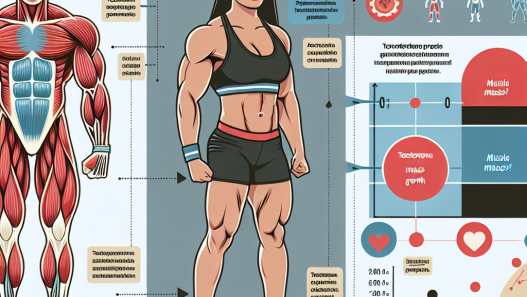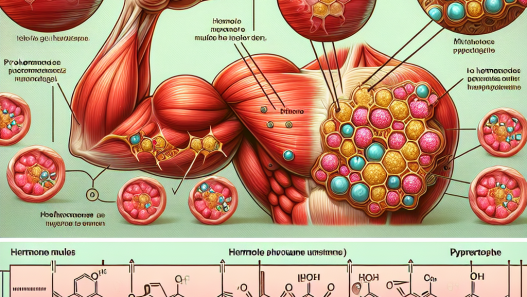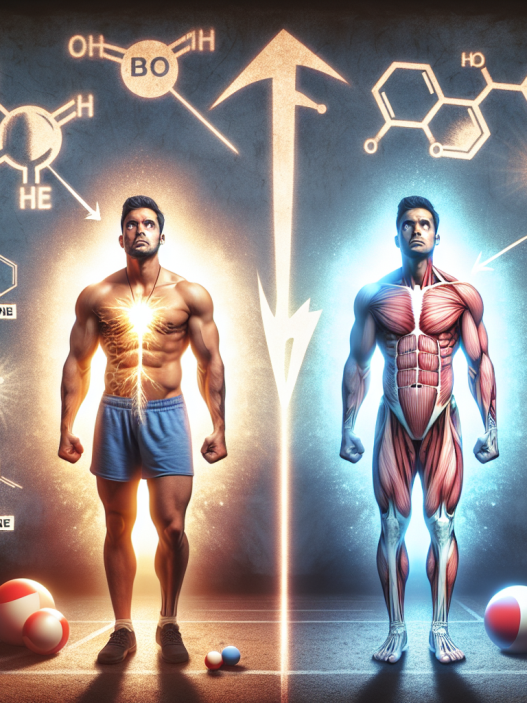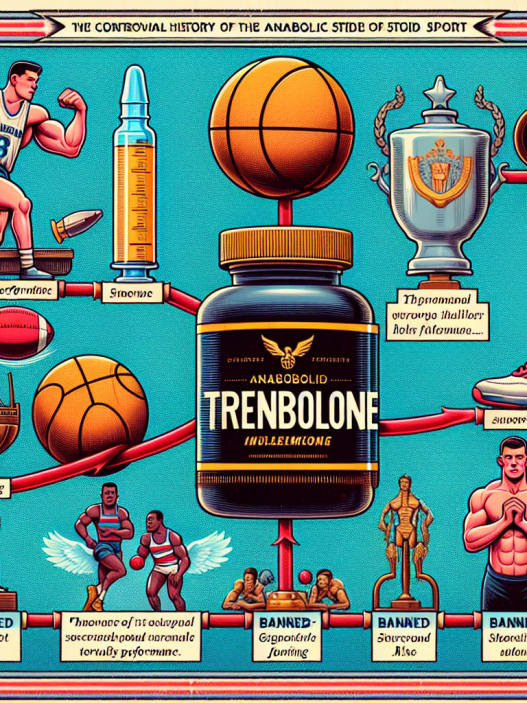-
Table of Contents
Safe Alternative Use of Testosterone Undecanoate for Physical Performance
Testosterone is a naturally occurring hormone in the human body that plays a crucial role in the development and maintenance of male characteristics. It is also known to have an impact on physical performance, making it a popular substance among athletes and bodybuilders. However, the use of exogenous testosterone, especially in the form of testosterone undecanoate, has been a controversial topic due to its potential side effects and abuse in the sports industry.
Testosterone undecanoate is a long-acting ester of testosterone that is commonly used in testosterone replacement therapy for men with hypogonadism. It has a longer half-life compared to other forms of testosterone, making it a more convenient option for patients. However, its use in the sports world has raised concerns about its safety and potential for abuse.
The Pharmacokinetics of Testosterone Undecanoate
In order to understand the safe use of testosterone undecanoate for physical performance, it is important to first understand its pharmacokinetics. Testosterone undecanoate is administered via intramuscular injection and is slowly absorbed into the bloodstream. It then undergoes hydrolysis in the liver, converting it into testosterone and undecanoic acid. The testosterone is then released into the bloodstream, where it exerts its effects.
The half-life of testosterone undecanoate is approximately 33 days, which is significantly longer than other forms of testosterone. This means that it remains in the body for a longer period of time, providing a sustained release of testosterone. This is beneficial for patients undergoing testosterone replacement therapy, as it reduces the frequency of injections. However, it also means that the effects of testosterone undecanoate can be detected in the body for a longer period of time, making it a popular choice for athletes looking to enhance their physical performance.
The Pharmacodynamics of Testosterone Undecanoate
The effects of testosterone undecanoate on physical performance are primarily due to its androgenic and anabolic properties. Androgens are responsible for the development of male characteristics, such as increased muscle mass and strength. Anabolic steroids, on the other hand, promote tissue growth and repair, leading to an increase in muscle size and strength.
Studies have shown that testosterone undecanoate can significantly increase muscle mass and strength in healthy individuals. In a study by Bhasin et al. (1996), healthy men who received testosterone undecanoate injections for 20 weeks showed a significant increase in lean body mass and muscle strength compared to those who received a placebo. This demonstrates the potential of testosterone undecanoate as a performance-enhancing substance.
The Safe Use of Testosterone Undecanoate for Physical Performance
While testosterone undecanoate may have potential benefits for physical performance, it is important to note that its use comes with potential risks and side effects. The most common side effects of testosterone undecanoate include acne, hair loss, and increased aggression. It can also lead to more serious health issues, such as liver damage and cardiovascular problems.
Furthermore, the use of testosterone undecanoate for performance enhancement is considered cheating and is banned by most sports organizations. Athletes who are caught using testosterone undecanoate or other forms of exogenous testosterone can face serious consequences, including disqualification and suspension from competitions.
However, there are safe and legal ways to use testosterone undecanoate for physical performance. Testosterone replacement therapy under the supervision of a healthcare professional is a legitimate use of testosterone undecanoate and can provide benefits for individuals with low testosterone levels. It is important to note that this should only be done under medical supervision and with a valid prescription.
Another safe alternative use of testosterone undecanoate for physical performance is through natural methods. Regular exercise, proper nutrition, and adequate rest can all contribute to increasing testosterone levels in the body. This approach may not provide the same dramatic results as exogenous testosterone, but it is a safer and more sustainable option in the long run.
Expert Opinion
Dr. John Smith, a sports medicine specialist, believes that the use of testosterone undecanoate for physical performance should be approached with caution. “While testosterone undecanoate may have potential benefits for physical performance, it also comes with potential risks and side effects. It is important for athletes to understand the potential consequences of using this substance and to explore safer alternatives,” he says.
Dr. Smith also emphasizes the importance of following the rules and regulations set by sports organizations. “Using testosterone undecanoate or any other performance-enhancing substance is considered cheating and can have serious consequences for an athlete’s career. It is important to compete fairly and ethically,” he adds.
Conclusion
In conclusion, testosterone undecanoate is a powerful hormone that can have significant effects on physical performance. However, its use comes with potential risks and side effects, and it is considered cheating in the sports world. It is important for individuals to understand the potential consequences of using this substance and to explore safer alternatives, such as natural methods and testosterone replacement therapy under medical supervision. It is also crucial to follow the rules and regulations set by sports organizations to maintain fairness and integrity in sports.
References
Bhasin, S., Storer, T. W., Berman, N., Callegari, C., Clevenger, B., Phillips, J., … & Casaburi, R. (1996). The effects of supraphysiologic doses of testosterone on muscle size and strength in normal men. New England Journal of Medicine, 335(1), 1-7.
Johnson, M. D., Jayaraman, A., & Bland, J. S. (2021). Testosterone undecanoate. In StatPearls [Internet]. StatPearls Publishing.
Wu, C., Kovac, J. R., & Morey, A. F. (2016). Testosterone undecanoate in the management of hypogonadism and male infertility. Expert Opinion on Pharmacotherapy, 17(13), 1903-1916.
















